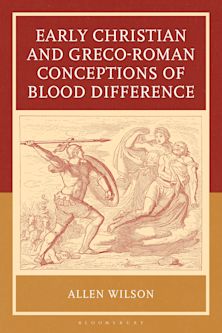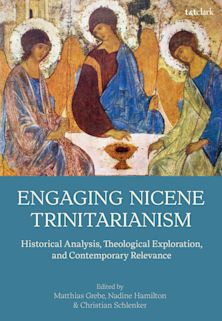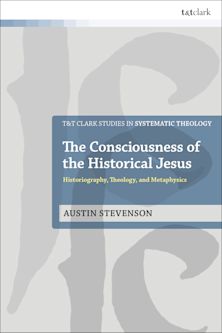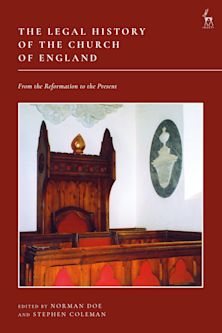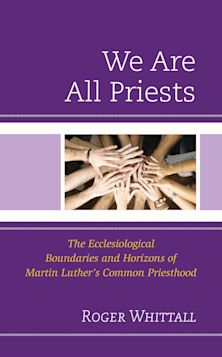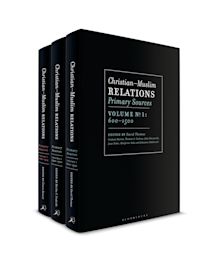- Home
- ACADEMIC
- Theology
- Historical Theology
- De Lubac: A Guide for the Perplexed
De Lubac: A Guide for the Perplexed
You must sign in to add this item to your wishlist. Please sign in or create an account
Description
Henri de Lubac is a dominating figure in the renewal of catholic theology in the twentieth century, opposing neo-Thomist orthodoxy with a pluriform and historical notion of tradition based on the creative reappropriation of patristic sources. De Lubac's adult life encompasses the whole of what Eric Hobsbawm has called the 'short' twentieth century, extending from the outbreak of the First World War in 1914, in which he fought, to the collapse of the Soviet Union in 1991, the year in which he died. De Lubac commenced his theological training in exile in England, played a key role in the nouvelle théologie associated with the Jesuit scholasticate at Fourvière in Lyons, assumed a leading part in catholic resistance to the Vichy regime, was silenced in the aftermath of Humani generis in the 1950s, rehabilitated as a peritus (theological adviser) to the Second Vatican Council, and raised to the cardinalate in 1983. This introduction to De Lubac will therefore also provide an overview of the whole of twentieth century French catholic theology. De Lubac's work extends beyond narrow theological boundaries. Because of this breadth of interest, some areas of his work, such as his political theology and study of Buddhism, have previously received little attention. In bringing figures from other intellectual disciplines into dialogue with Christian scripture and tradition, however, De Lubac reveals the theological significance of their positions as well as demonstrating the insufficiency of their ambivalent attitudes to faith.
Table of Contents
1. God and nature: the theory of pure nature; beyond pure nature and necessary grace; the desire of nature for God; theology, history and the Church
2. Spiritual resistance to Nazism: patriotism and nationalism; Church and politics: power versus conscience; sacred versus secular?; conscience and reflective action; spiritual resistance; the love of justice in Christ
3. The Church: theology and controversy; faith, order and tradition; the Eucharist; particular and local churches in the universal Church; the bishop; priesthood and the family of God; the mission of the Church
4. Scripture: scriptural questioning; the historical sense and the literal sense; the spiritual sense and the mystical sense (the allegorical sense; the tropological sense: moral and mystical; the anagogical (eschatological) sense); Christ the New Testament
5. Person, world and history: writing and reading history; the threefold humanity of Christ; God, person and world
6. Faith and reason: faith and the idea of God; belief in God; arguing for God; Christian philosophy; dogma, revelation and divine ineffability
7. Christ and the Buddha: the Cross and the bodhi tree; for love of the person; faith, religion and culture
8. The challenge of the supernatural: conclusion and agenda
Product details
| Published | Sep 03 2007 |
|---|---|
| Format | Ebook (PDF) |
| Edition | 1st |
| Extent | 200 |
| ISBN | 9780567172457 |
| Imprint | T&T Clark |
| Series | Guides for the Perplexed |
| Publisher | Bloomsbury Publishing |
About the contributors
Reviews
-
De Lubac: A Guide for the Perplexed is a success. Indeed the book could well serve graduate students approaching de Lubac for the first time, and it includes biographical and historical information that may be of interest even to theologians already familiar with his work.
Bryan Hollon, Pro Ecclesia
-
Henri Cardinal de Lubac (1896-1991) was a French Jesuit and surely one of the most influential theologians of the twentieth century...This book is part of the Guides for the Perplexed series from Continuum (T&T Clark)...the serious student will find in its pages not only a synopsis of the life's work of this theologian, but also his context and his influence. This book is highly recommended for all seminary libraries and other academic libraries that support graduate programs in theology.
Herman A. Peterson, Catholic Library World, December 2008
-
This very valuable study is rare in covering so comprehensively the breadth offered by de Lubac, without sacrificing depth of analysis and while demonstrating its coherence ... The book is scholarly, thoroughly documented, well written, detailed and balanced in judgements. An excellent annotated bibliography provides an invaluable guide to further study. Grumett's exposition is sophisticated, avoiding easy or shallow categorisation of de Lubac's thought; it is saturated in the whole range of de Lubac's vast corpus and offers extensive quotation from this.
Theological Book Review, Volume 20, No 2, 2008
-
In this book, part of a larger Guides for the Perplexed series, David Grumett fashions an unique window through which the reader can peer over the landscape of Henri de Lubac's theology. As Avery Dulles notes in his foreword, Grumett has written the first book in English that presents in thematic fashion a general survey of many of the questions de Lubac treated over the course of his lifetime...To Grumett's credit, it is worth mentioning that de Lubac's political writings as well as his encounter with Amidism are often overlooked in summary treatments of his thought. While Grumett devotes the larger portion of the book to a lucid presentation of key themes in de Lubac, he intersperses historical data and background suitable to the purpose of the book, which is to serve as an introduction to de Lubac as a thinker...This book is a fine introduction for anyone interested in de Lubac or twentieth-century theology in general. It could be used on the advanced undergraduate level but would be most appropriate as a secondary text in a course on de Lubac at the graduate level. The book includes endnotes, a helpful bibliography with a topical list of secondary sources, and an index.
Andrew W. Lichtenwalner, Catholic Books Review
-
This very valuable study is rare in covering so comprehensively the breadth offered by De Lubac, without sacrificing depth of analysis and while demonstrating its coherence... The book is scholarly, thoroughly documented, well written, detailed and balanced in judgments.
Prof. John Sullivan, Liverpool Hope University














